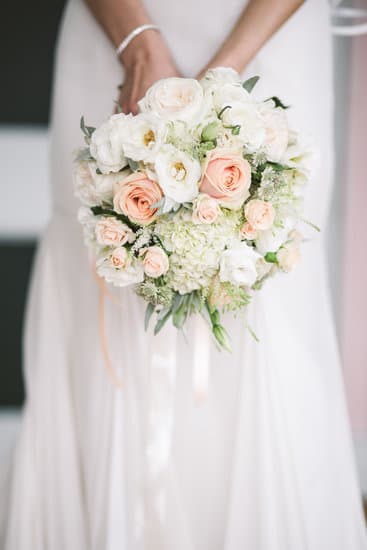Are you currently planning your dream wedding and wondering, “How long should wedding reception last?” The duration of a wedding reception can significantly impact the overall experience for both the couple and their guests. From venue restrictions to budget constraints to the desires of the bride and groom, there are many factors to consider when determining the length of this important celebration.
The wedding reception is a pivotal component of any marriage ceremony, serving as a time for the newlyweds to celebrate their union with family and friends. It is essential to carefully consider how long the reception should last in order to ensure that it aligns with the vision for the event and provides an enjoyable experience for everyone in attendance.
In this article, we will delve into the various factors that couples should take into account when deciding on the length of their wedding reception, explore traditional timelines for such events, and weigh the pros and cons of both short and long receptions. Additionally, we will provide practical tips on finding the right balance and share real-life examples and experiences to illustrate how the duration of a wedding reception can impact the overall celebration.
So, if you’re eager to learn more about how to determine the ideal length for your wedding reception, keep reading.
Factors to Consider When Determining the Length of the Reception
When determining the length of a wedding reception, there are several important factors to take into consideration. One key factor to consider is the venue restrictions. Some venues may have specific time constraints that limit the duration of the reception. It’s essential for couples to check with their chosen venue to understand any limitations and ensure that they plan accordingly.
Another factor to consider is the budget. The length of the reception can significantly impact overall costs, as it can affect expenses such as catering, entertainment, and venue rental fees. Couples should carefully assess their budget and determine how much they are willing and able to spend on the reception in relation to its duration.
Additionally, it’s crucial for couples to consider their own desires when determining the length of the reception. Some couples may prefer a shorter, more intimate celebration, while others may envision a longer event filled with various activities and entertainment. Understanding and aligning with each other’s expectations can help determine the ideal length for the wedding reception.
| Factors to Consider | Data |
|---|---|
| Venue Restrictions | Check with chosen venue for time constraints |
| Budget | Determine cost implications on expenses such as catering, entertainment, and venue rental fees. |
| Couple’s Desires | Aligning with each other’s expectations and preferences. |
Traditional Timeline for Wedding Receptions
When it comes to planning the length of their wedding reception, many couples turn to the traditional timeline for guidance. Understanding the typical flow of events during a wedding reception can help them determine how long each portion should last and create a well-rounded schedule for their special day.
Cocktail Hour
The cocktail hour is a time for guests to socialize and enjoy drinks and light appetizers before the main reception begins. This portion of the event typically lasts around 1-1.5 hours, allowing enough time for guests to arrive, mingle, and transition to the main reception area.
Dinner Service
Once the cocktail hour concludes, guests are usually seated for dinner service. Depending on the style of dining (plated, buffet, etc.) and the number of courses being served, dinner can take anywhere from 1-2 hours. It’s essential to consider the size of your guest list and your desired dining experience when determining how long this portion should last.
Traditions and Dancing
After dinner, traditional events such as speeches, cake cutting, and first dances typically take place. Following these traditions, dancing often begins as well. This segment varies widely in length but generally lasts anywhere from 2-4 hours. An extended period allows ample time for all planned activities without feeling rushed or cut short.
By understanding these traditional timelines for wedding receptions, couples can better gauge how long each portion should last based on their unique preferences and needs. The key is to find a balance that allows for a seamless flow of events while ensuring that guests have an enjoyable and memorable experience at the reception.
Pros and Cons of a Short Reception
When it comes to planning a wedding reception, one of the key decisions that couples must make is how long the event should last. While many opt for a traditional evening affair, others are considering shorter receptions for various reasons. Let’s take a look at the pros and cons of having a short wedding reception.
One of the primary benefits of a short reception is cost savings. A shorter event means less time that vendors, such as caterers or photographers, will need to be on-site, which can result in significant savings for the couple. Additionally, if budget constraints are a concern, a shorter reception can help alleviate some of the financial burdens associated with hosting a large event.
On the other hand, one of the drawbacks of a short reception is that there may not be enough time to fully enjoy all aspects of the celebration. Guests may feel rushed and as though they did not have ample time to socialize and partake in all the festivities. Without adequate time, the couple may also feel pressured to fit everything into a tight schedule, leading to added stress on what should be a joyous occasion.
Another drawback to consider is that some guests may have traveled long distances to attend the wedding, making it important for them to feel that their efforts were worthwhile. If the reception is too short, they may feel disappointed by not spending enough time with the couple or being unable to fully engage in the celebration.
Ultimately, determining whether to host a short wedding reception involves weighing these pros and cons against each other along with other factors such as personal preferences and venue restrictions. It’s crucial for couples to carefully consider these aspects when making this decision.
Pros and Cons of a Long Reception
When it comes to planning the length of a wedding reception, there are several factors to consider. One of the key decisions that couples must make is whether they want to have a longer reception or keep it relatively short. There are pros and cons to each option, and it’s important for couples to carefully weigh these factors before making a decision.
Pros of a Long Reception
One of the biggest advantages of having a long reception is the ability to fully enjoy the celebration without feeling rushed. A longer reception allows for more time to savor precious moments with family and friends, creating lasting memories that will be cherished for years to come. Additionally, with more time available, couples can incorporate additional special activities or entertainment to further enhance the guest experience.
Another benefit of a long reception is the opportunity for guests to connect and socialize in a relaxed setting. Weddings often bring together people from various aspects of the couple’s lives, and a longer reception provides ample time for everyone to mingle and form meaningful connections. This can contribute to a warm and inclusive atmosphere that leaves guests feeling valued and appreciated.
Cons of a Long Reception
On the other hand, there are also potential drawbacks associated with having a long reception. One concern is that guests may become fatigued or restless if the event extends too far into the evening. For some attendees, especially those with young children or elderly relatives, an excessively long reception may become physically taxing.
Additionally, hosting a lengthy reception can increase costs significantly as venues often charge by the hour. Couples on a tight budget may find it challenging to justify spending extra resources on an extended celebration. Furthermore, vendors such as musicians, DJs, photographers, and caterers typically charge higher fees for extended service hours.
Ultimately, determining the optimal length for a wedding reception involves weighing these pros and cons in light of one’s unique circumstances and priorities. By carefully considering these factors alongside other relevant considerations such as cultural traditions and logistical constraints, couples can confidently decide how long their wedding celebration should last.
Tips for Finding the Right Balance
When it comes to determining how long a wedding reception should last, there are several important factors that couples need to consider in order to find the right balance. One of the primary considerations is the venue’s restrictions or limitations.
Some venues may only allow events to go on for a certain number of hours, while others may have noise ordinances or curfews that need to be adhered to. Couples should also take into account their budget and how much they are willing to spend on extending the reception.
Another crucial factor in determining the length of the reception is the desires of the bride and groom. Some couples may want a longer celebration with more time for dancing and socializing, while others may prefer a shorter event that allows for a more intimate gathering with close family and friends. It is essential for couples to communicate openly about their preferences and come to a mutual decision on how long they want their reception to be.
In addition, it is important to consider the comfort and enjoyment of the guests attending the wedding reception. A reception that is too short may feel rushed and leave guests wanting more, while an excessively long reception might lead to fatigue and boredom among attendees. Therefore, finding the right balance that satisfies both the couple and their guests is key in creating a memorable and enjoyable wedding celebration.
| Factors to Consider | Details |
|---|---|
| Venue Restrictions | Some venues have limitations on event duration. |
| Budget | Determining how much can be spent on extending the reception. |
| Bride and Groom Preferences | Couples should communicate openly about their desired length for the reception. |
Real-Life Examples and Experiences
When planning a wedding reception, one of the most common questions that arise is “how long should wedding reception last?” This decision is crucial as it can ultimately determine the flow of the event and the overall satisfaction of both the couple and their guests. To help answer this question, it can be helpful to explore real-life examples and experiences of how the length of a reception impacted various weddings.
Real-life examples can provide valuable insight into the impact of different reception lengths on the overall experience for everyone involved. Some couples opt for shorter receptions to keep things more intimate and low-key, while others prefer longer receptions to allow more time for dancing and socializing. To illustrate, here are some real-life anecdotes from past weddings:
- Short Reception: A couple chose to have a short two-hour reception at a local restaurant. The intimate setting allowed for meaningful conversations with each guest, but some felt that they didn’t have enough time to fully enjoy themselves.
- Long Reception: Another couple held a six-hour reception at a spacious venue with ample entertainment options. While guests appreciated the extended celebration, some felt fatigued towards the end of the night.
- Medium-Length Reception: A pair hosted a four-hour reception at a charming garden venue. This duration struck a balance between allowing enough time for activities and ensuring guests left feeling satisfied rather than exhausted.
These real-life experiences highlight the diverse ways in which different reception lengths can impact weddings. It’s clear that there isn’t a one-size-fits-all answer to how long a wedding reception should last. Ultimately, finding the right balance will depend on various factors such as venue logistics, budget constraints, and most importantly, what feels right for the couple and their loved ones.
Drawing from these examples, couples are encouraged to think critically about their priorities and preferences when determining the ideal length for their own wedding reception. By considering both personal desires and practical considerations, they can find a sweet spot that allows everyone to fully enjoy this special day together.
Conclusion
In conclusion, the duration of a wedding reception is a crucial factor that can significantly impact the overall success of the event. Factors such as venue restrictions, budget, and the desires of the bride and groom all play a role in determining how long the reception should last.
The traditional timeline for wedding receptions often includes key events like the cocktail hour, dinner, toasts, cake cutting, and dancing. Understanding these traditional timelines can help couples make informed decisions about the length of their reception.
When considering the pros and cons of a short versus long reception, it’s important for couples to weigh their priorities and expectations. A shorter reception may be more budget-friendly and ideal for guests with limited time or young children.
On the other hand, a longer reception allows for a more leisurely pace and additional time for dancing and socializing with loved ones. Finding a balance between these two options is key to creating an enjoyable experience for everyone involved.
Ultimately, every wedding is unique, and there is no one-size-fits-all answer to how long a reception should last. It’s essential for couples to carefully consider their own preferences, as well as those of their guests when planning this aspect of their special day.
By taking into account practical considerations and finding that sweet spot between too short or too long, couples can create a memorable and enjoyable celebration that reflects their love and commitment to each other.
Frequently Asked Questions
Is a 4 Hour Wedding Reception Long Enough?
A 4-hour wedding reception can be enough time for many couples, especially if they are looking to have a shorter, more intimate celebration. It allows for the main events, such as dinner and dancing, without being too long or overwhelming for guests.
How Long Does a Typical Wedding Reception Last?
A typical wedding reception usually lasts around 4 to 5 hours. This timeframe gives enough time for the key elements of the reception, including the entrance of the newlyweds, dinner service, speeches, cake cutting, and dancing. It strikes a balance between being enjoyable but not overly fatiguing for guests.
What Is the 30 5 Minute Rule for Weddings?
The 30-5 rule for weddings suggests that during the first 30 minutes of the cocktail hour, at least five food and beverage options should be available to guests. This helps ensure that everyone has access to a variety of choices and doesn’t go hungry while waiting for the wedding festivities to begin.

I have been involved in marriages for over 20 years helping couples and singles understand more about them.





